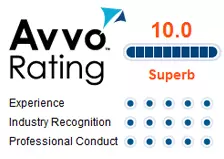News Release:
Michigan Legislators Pass Draconian New “Super Drunk” Law
Contact: Patrick T. Barone, Esq.
For Immediate Release
Lansing, Michigan (January 9, 2009) – On December 19, 2008, Michigan Enrolled Senate Bill 1134 passed both houses of Michigan’s Legislature, and is now awaiting the Governor’s signature. Known as the “Super Drunk” bill, this legislation amends several sections of Michigan law, and most notably adds a new crime for drivers with a bodily alcohol content (BAC) of .17 or greater. Under this new statutory definition of operating while intoxicated these high BAC drivers are required to have a breath alcohol ignition interlock device (BAIID) placed on their vehicle. This new law will not take effect until October 31, 2010.
Under the bill high BAC drivers are subjected to other more punitive sanctions. For example, a first offense high BAC drunk driver’s license is suspended for one year. The first 45 days of this year is considered a “hard” suspension, meaning absolutely no driving is allowed. During the remaining 320 days the offender is entitled to restricted driving privileges, but must have an ignition interlock device placed on their car during this period. Fines are increased to $200.00 – $700.00, and potential jail time is increased from up to a possible 93 days to as much as 180 days. The court must also order a mandatory minimum one-year alcohol treatment program. The high BAC sanctions only apply to first offenders – repeat offender sanctions remain unchanged.
The bill proposes to create a second new offense related to the monitoring of the BAIID. Accordingly, any violation of the driving restrictions imposed, or operating or attempting to operate a vehicle with a BAC of 0.025 or greater, results in a doubling of the license penalty. Thus, offenders who violate their license restrictions will have a second set of identical driver license sanctions imposed, meaning a new 45 day period of no driving followed by 320 days of restricted driving with the BAIID.
Once installed, a typical BAIID requires a driver to blow into the device when they first start their car, and then retest within the first 5 to 15 minutes. The BAIID will not allow the car to be started if it detects a BAC of .025 or greater. When driving for longer periods of time the driver must also test about twice every hour. The device records each test and any violation is reported to the monitoring agency. If during operation it detects a BAC of greater than .025, then a warning signal will be emitted, and after coming to a complete stop the car cannot be re-started until the driver has a BAC of less than .025.
Patrick Barone, a Birmingham, Michigan lawyer specializing in drunk driving defense said that .025 BAC is equal to about one drink of alcohol for a person weighing approximately 160 pounds. “But that’s probably not the reason they choose .025. Illinois’ new BAIID law uses a slightly lower number of .024, and this is really the lower limit of the BAIID’s ability to measure breath alcohol. Anything less than that could literally be nothing but electronic noise,” said Barone who teaches a class called “Drunk Driving Law and Practice” at the Thomas M. Cooley law school.
The law also makes drunk driving more expensive because it is the driver’s responsibility to pay the cost of installing the BAIID as well as the monthly fees required to maintain it. While the state does not regulate the cost of ignition interlock devices, the Legislature had previously limited the amount that can be charged to people on low-incomes to a maximum of $1.00 per day. The new law increases this minimum to $2.00 per day, and for certain low income drivers the installation fee is waived. Drivers that do not meet the low income deferment requirements must pay the BAIID vendor’s usual rates. In Michigan installation fees are around $50.00, and depending on the vendor, monthly fees can be as high as $100.00 month. For this reason, according to Barone, “the BAIID laws are expensive, terribly onerous and unreasonably punish drivers.”
In passing this legislation, Michigan’s lawmakers stopped short of matching statutes recently enacted in Illinois requiring a BAIID device be installed for all offenders. The Illinois law, which went into effect earlier this year, requires the BAIID as a condition of driving even before there has been a conviction.
Like Illinois, the Michigan law was actively supported by MAAD as it is their belief that the BAIID requirement saves lives. Barone has a different viewpoint. “The drunk driving laws were previously amended to allow the BAIID as a condition of bond or probation, so the courts have already been given this tool. Considering this, one wonders why the new law was necessary. It looks more like pandering to MADD than an honest effort to make Michigan’s drivers safer.” For this reason Barone believes that this new bill was ill-conceived, and is likely to have very little, if any, impact on safety or recidivism.
The new law also provides for a sanction of impoundment where a person required to have a BAIID is stopped in a car without one. If this non-BAIID vehicle is individually or jointly owned, the vehicle registration plate will be confiscated and destroyed. A new temporary plate will be issued and the Secretary of State will be notified. This is considered to be an “offending vehicle” sanction, meaning the owner and not necessarily the driver of the car remains liable for all expenses incurred in the removal and storage of the vehicle.
In a rather peculiar change, the owner or person in charge or control of a vehicle who knowingly allows an intoxicated person to drive that vehicle must have that vehicle immobilized for 90 to 180 days. Immobilization can be avoided, provided a BAIID is installed and the owner or person in charge or control of the vehicle obtains a restricted license from the Secretary of State. However, the court may reinstate vehicle immobilization if the ignition device is tampered with, circumvented, disabled, or the person’s restricted license is suspended or revoked.
It is unclear if this new law will truly impact many of Michigan’s drunk drivers. Under the current law it is quite common for first offense drunk drivers to plead guilty to the lesser included offense of impaired driving. According to Barone the new law will either have no impact, or severely clog the courts with unnecessary trials. “It seems plausible that first offenders will commonly be offered the option of pleading guilty to traditional operating while intoxicated or operating while visibly impaired, thereby avoiding this BAIID requirement altogether. If such pleas are not offered, then it is likely that the court system will be clogged by more drunk driving trials.”
Barone thinks that it is also likely that more hearings will be scheduled contesting faulty BAIID results, further clogging court dockets. In his two-volume treatise titled Defending Drinking Drivers Barone writes about the different ways a BAIID can produce a false result. “These devices use alcohol-specific electrochemical fuel sensor technology which is known to respond alcohols other than beverage alcohol. For example, I recently handled a case where the driver’s BAIID went off because he was using too much wiper fluid. The chemicals in the fluid caused a reading of .06” said Barone.
About the Author:
Patrick T. Barone is the principal and founding member of the Barone Defense Firm whose practice is devoted exclusively to the defense of drinking drivers and license restoration matters. He is the author of two books on the topic including the highly respected Defending Drinking Drivers (James Publishing) and an Adjunct Professor at Thomas M. Cooley Law School where he teaches “Drunk Driving Law and Practice.” He can be reached at (248) 594-4554 or on the web at www.BaroneDefenseFirm.com
Related posts:




{ 1 trackback }